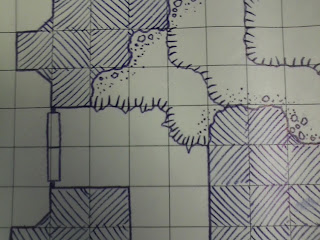Thursday 12 December, LAST DAY! Learning, sharing, making, doing, thinking, acting
· LEARNING ANALYSIS DUE & PRESENTED; LOGBOOK 4 DUE
On our last day we will share with each other our thoughts on how what we know has changed during our time together.
· DUE THURSDAY THE LAST DAY IN CLASS: LOGBOOK 4, LEARNING ANALYSIS IN HARD COPY & ALSO SENT ELECTRONICALLY; website splash page and data. (And anything not yet turned in.)
· Send to katiekin@gmail.com , use filename <yrlastname> 300 LEARNING ANALYSIS or LOGBOOK4 or whatever. Subject header SHOULD BE THE SAME.
You will get a written evaluation from me as I look through all your work for the semester. It will come on email, at the email address I have from Testudo's roster. Be sure to check that email to see it and your grade for the semester. I will do my best in the evaluation to share my interest in your work and to offer suggestions for the future. And I would be delighted to see you next term to discuss this class or anything else! I have enjoyed our class so much, and appreciate all of you!
You will get a written evaluation from me as I look through all your work for the semester. It will come on email, at the email address I have from Testudo's roster. Be sure to check that email to see it and your grade for the semester. I will do my best in the evaluation to share my interest in your work and to offer suggestions for the future. And I would be delighted to see you next term to discuss this class or anything else! I have enjoyed our class so much, and appreciate all of you!
Passing some sweetness around....
Today we begin for everyone with some exercises, to help us focus and make it a bit easier to share what we have done in the learning analysis. Today each person will speak and offer their own unique sense of traveling through the argument or story of the course. Our personal feelings are, of course, a special part of this. But do think of this primarily as an intellectual sharing of analysis as well as of any careful personal details. Celebrating each others' work and our own, and especially thinking together today about the knowledge we each bring into being is the collective project here, our feminist reconceptualization. So listen as carefully as you speak, because active listening is as necessary to collective thought. If someone else says something you intended to say, then -- thinking on your feet -- find another something to say that is a unique bit of your own work instead.
Focusing exercises for presenting:
EVERYONE:
1) find your favorite paragraph in the learning analysis. Put a star next to it.
2) write down what you are most proud of in this paper.
3) put an arrow next to the place you think best describes the argument of the course.
4) write down your favorite reading and be prepared to say what element of its ANALYSIS made it special for you.
PICK ONE OF THESE TOO:
=write about a moment in the course where everything seemed to come together for you.
=write about a moment outside the course where you realized you were using something you had learned in the class.
=write about a moment when you discovered something new about how you were included in the argument of the class.
WHEN IT IS YOUR TURN TO SPEAK:
 pick out four of these to share. Focus on analysis -- of the course, readings, experiences, realizations -- especially, although feelings and politics have important places too. Be mindful of the time -- we want to allow time for everyone in the class to speak today -- give some real details: don't be too general. Do show off the hard thinking you are capable of. Make sure what you say is special and unique.
pick out four of these to share. Focus on analysis -- of the course, readings, experiences, realizations -- especially, although feelings and politics have important places too. Be mindful of the time -- we want to allow time for everyone in the class to speak today -- give some real details: don't be too general. Do show off the hard thinking you are capable of. Make sure what you say is special and unique. And may we keep running into each other, over and over, in friendship and connection and intellectual community and joyful living!
And may we keep running into each other, over and over, in friendship and connection and intellectual community and joyful living!
===







































